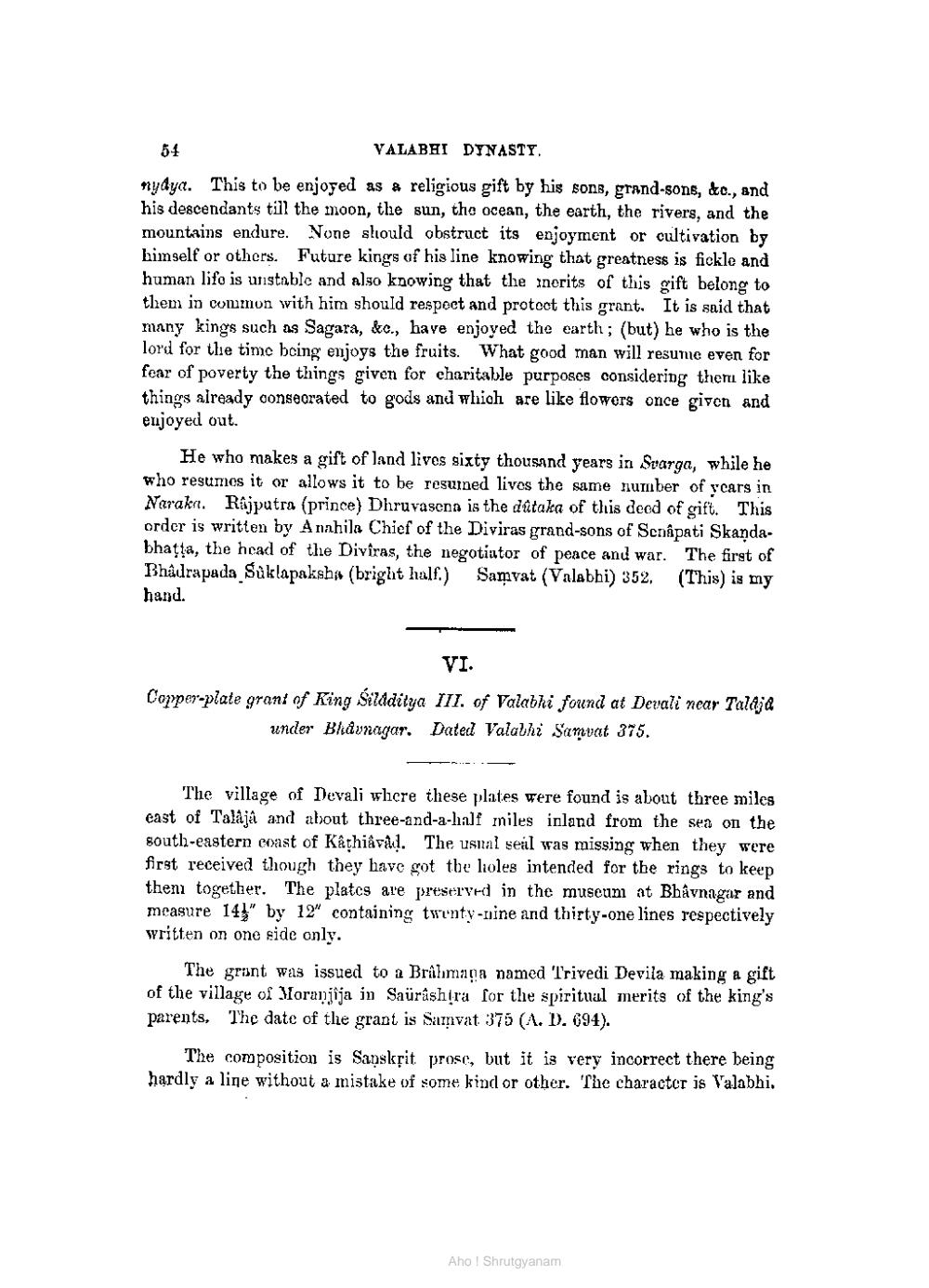________________
54
VALABHI DYNASTY.
nydya. This to be enjoyed as a religious gift by his sons, grand-sons, &c., and his descendants till the moon, the sun, the ocean, the earth, the rivers, and the mountains endure. None should obstruct its enjoyment or cultivation by himself or others. Future kings of his line knowing that greatness is fickle and human life is unstable and also knowing that the merits of this gift belong to them in common with him should respect and protect this grant. It is said that many kings such as Sagara, &o., have enjoyed the earth; (but) he who is the lord for the time being enjoys the fruits. What good man will resume even for fear of poverty the things given for charitable purposes considering them like things already consecrated to gods and which are like flowers once given and enjoyed out.
He who makes a gift of land lives sixty thousand years in Svarga, while he who resumes it or allows it to be resumed lives the same number of years in Narak. Rajpatra (prince) Dhruvasena is the ditaka of this deed of gift. This order is written by Anahila Chief of the Diviras grand-sons of Senapati Skandabhatja, the head of the Diviras, the negotiator of peace and war. Bhadrapada Suklapaksha (bright half.) Samvat (Valabhi) 352. (This) is my hand.
VI.
Copper-plate grant of King Sildditya III. of Valabki found at Devali near Talaja under Bhavnagar. Dated Valabhi Sampeat 375.
The village of Devali where these plates were found is about three miles east of Talaja and about three-and-a-half miles inland from the sea on the south-eastern coast of Kathiâvid. The usual seal was missing when they were first received though they have got the holes intended for the rings to keep them together. The plates are preserved in the museum at Bhavnagar and measure 14 by 12" containing twenty-nine and thirty-one lines respectively written on one side only.
The grant was issued to a Brühmaga named Trivedi Devila making a gift of the village of Moranjija in Saürishtra for the spiritual merits of the king's parents. The date of the grant is Samvat 375 (A. D. 694).
The composition is Sanskrit prose, but it is very incorrect there being hardly a line without a mistake of some kind or other. The character is Valabhi.
Aho! Shrutgyanam




